When everyone else uses Unity, why did we make our own custom game engine?
2023-02-01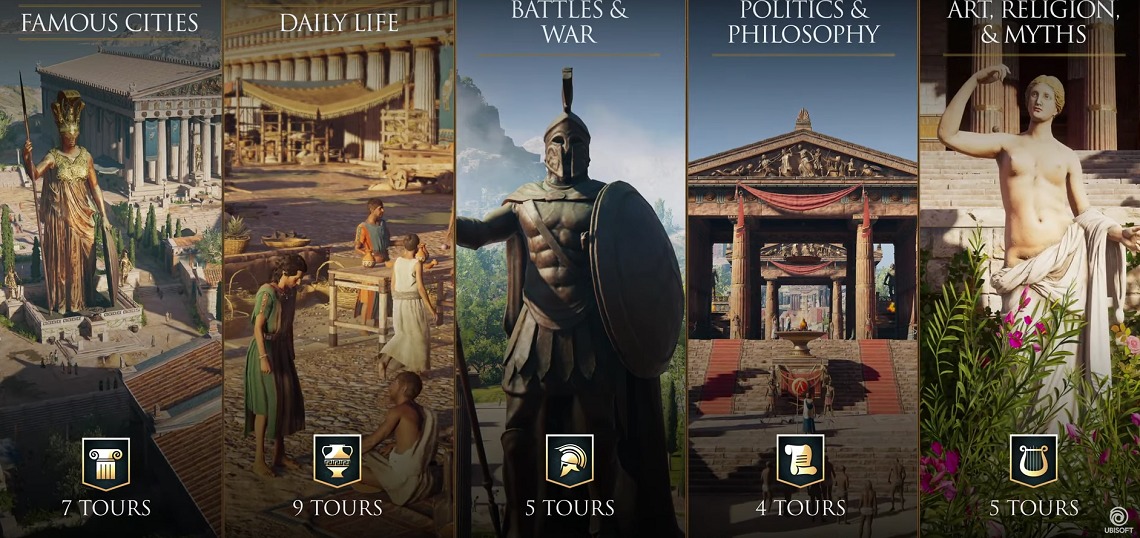
Are video games better than school?
2023-02-10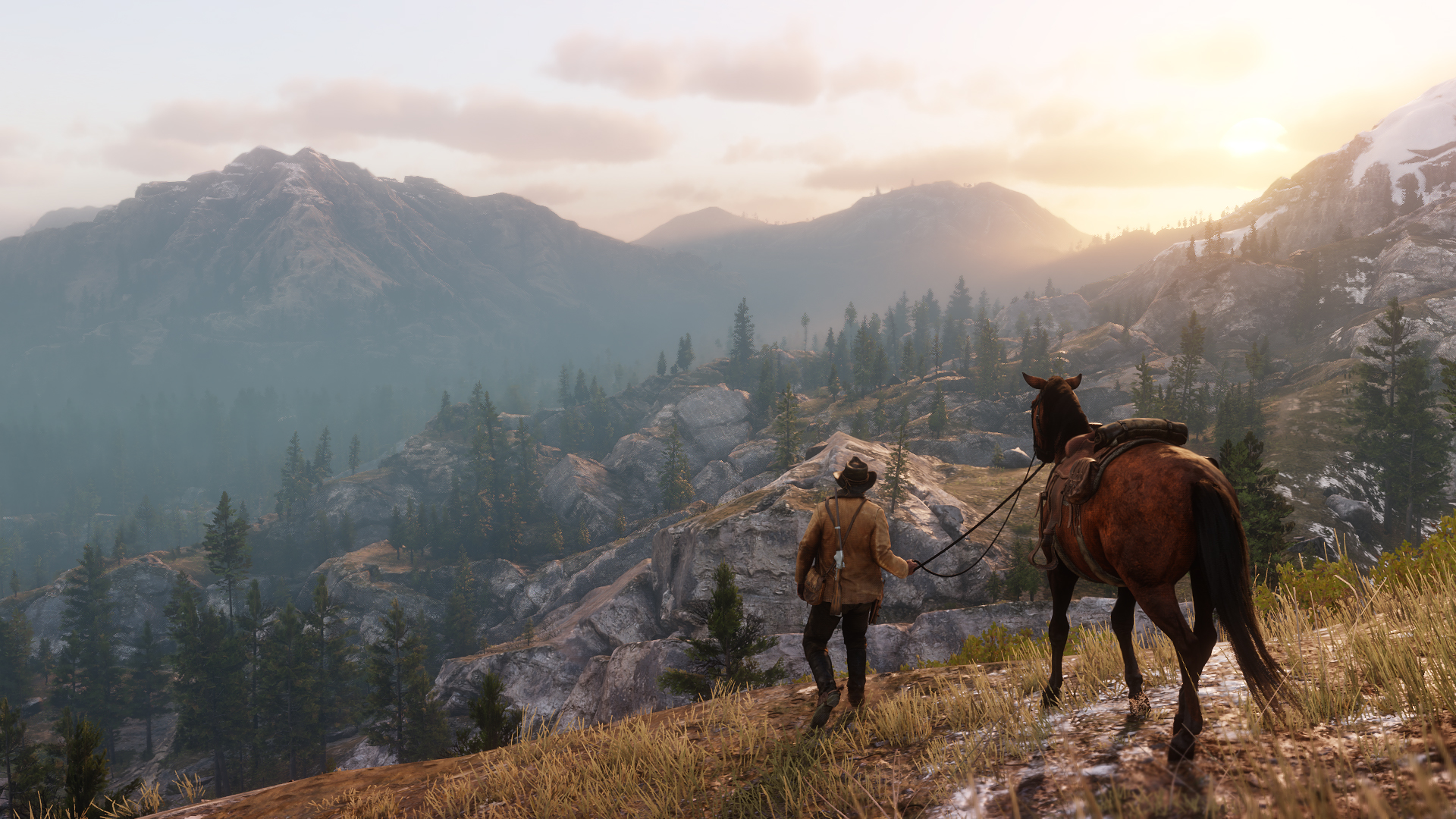
Are video games good for your brain?
There’s no question that video games have become quite sophisticated. Massive strides have been made in terms of gameplay, graphics and story, evolving from text-based games to fully immersive 3D adventure games, with award winning writing, and with graphics which some would argue are just as beautiful if not more so than renowned animated movies. Just look at Zork in contrast to Red Dead Redemption 2!
:max_bytes(150000):strip_icc()/zork-online-game-d47c3f8867de4eed8bcc8078ea8be546.png)
Screenshot of Zork
As the medium has reached new heights of popularity, gone are the days of video games only played in dingy basements. Nowadays, over half of the population plays video games. It is now the largest entertainment industry in the world, expected to be worth $321 billion by 2026.
Video games are therefore powerful forms of entertainment, but can they expand your mind? In other words, can video games teach?
Indeed they can. Here at Play Curious we are obsessed with how video games can be used for learning. Here are three ways that we have identified that they can teach:
Games as "historical fiction"
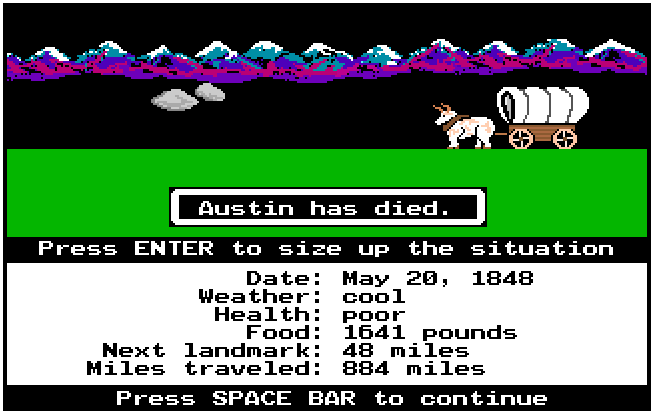
Oregon Trail Screenshot: Austin had dysentery and passed away we’re all very sad about it
One way games can teach is by providing a truthful historical backdrop which the player discovers as they play.
Indeed, one of the first educational video games did exactly this It began in 1971 when a few college students were searching for a more captivating way to teach westward expansion for an 8th-grade history class.
They created The Oregon Trail, a text-based strategy game in which the player, as the leader of a wagon train, controls a group journeying down the Oregon Trail from Independence, Missouri to Oregon City in 1847. The player purchases supplies, then plays through approximately twelve rounds of decision making, each representing two weeks on the trail. Each round begins with the player being told their current distance along the trail and the date, along with their current supplies. Supplies consist of food, bullets, clothing, miscellaneous supplies, and cash.
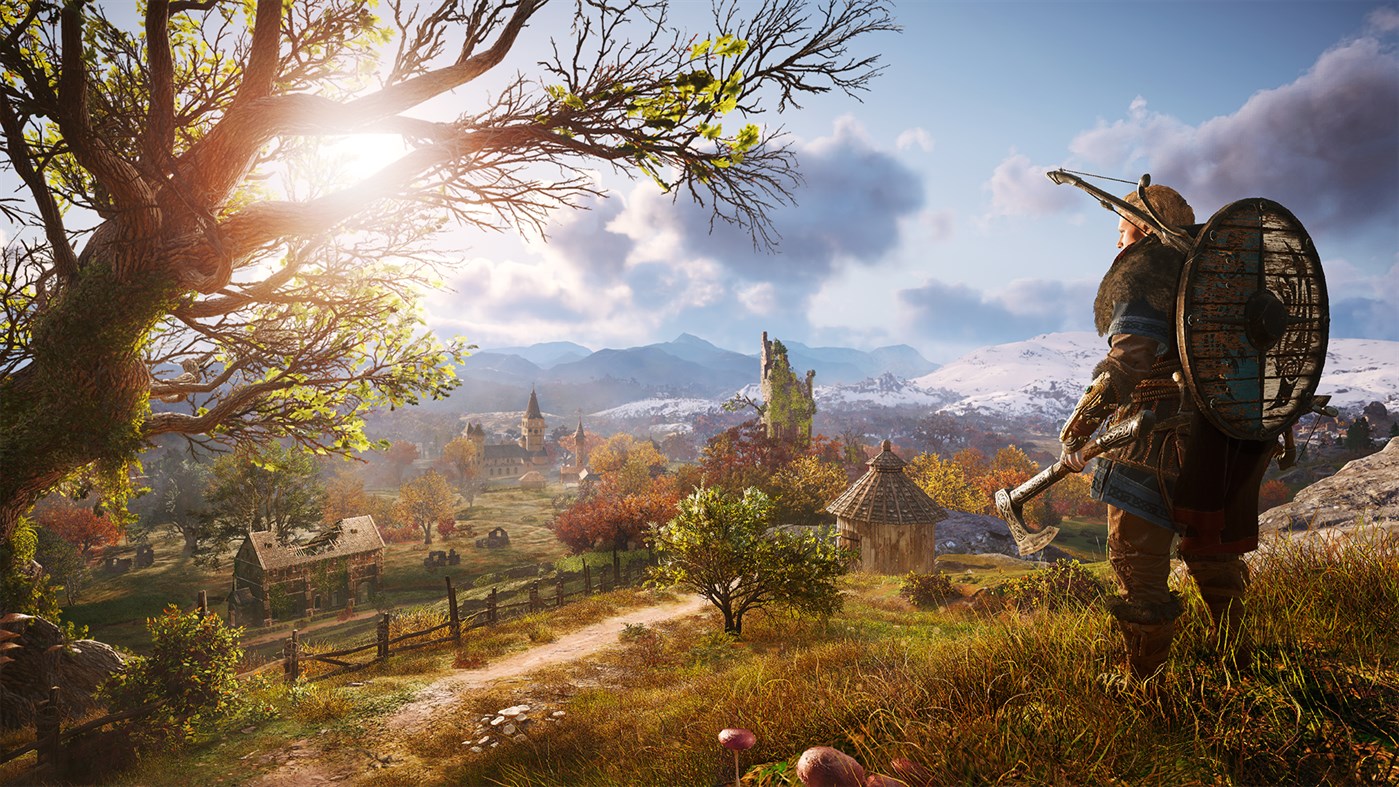
Presskit Screenshot of AC: Valhalla Gold Edition
A more recent example is the game Assassin’s Creed, by Ubisoft. It’s an action-adventure game, with lots of fighting, acrobatics, and sneaking around. But the designers have also put an incredible amount of attention into getting the historical backdrop correct.
Indeed, they even created a game mode, called the Discovery Tour, with no fighting at all. Instead, the player can freely explore the carefully crafting 3D world representing either ancient Egypt, Greece or the British Isles. As they discover the ancient world, the game feeds them juicy tidbits of history and culture.
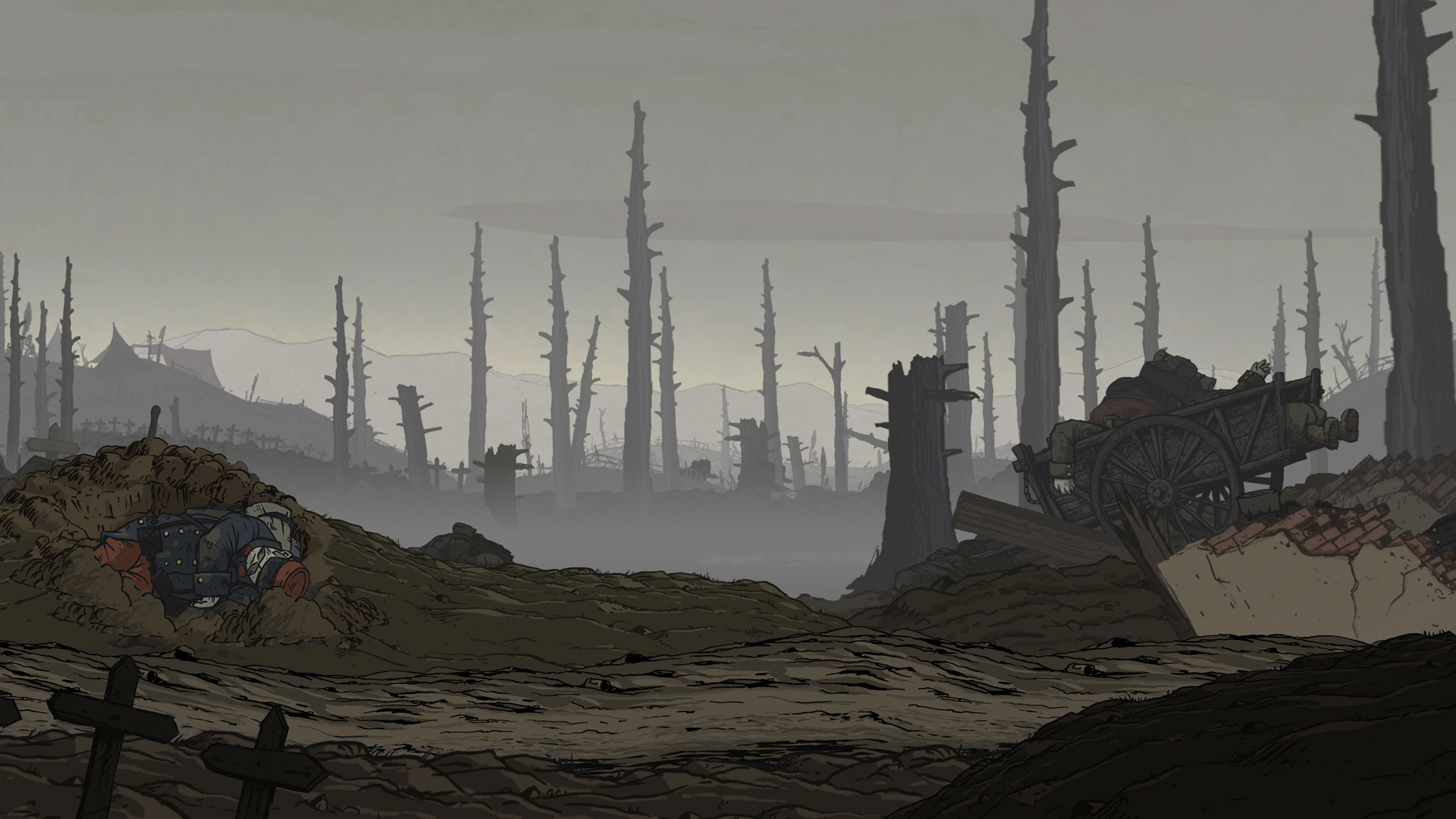
Banner of Valiant Hearts: The Great War
Another compelling example is Valiant Hearts, a side-scrolling, puzzle-based, adventure game which takes place during World War I. Players assume the role of four fictional characters: a Frenchman set off to battle, his German son-in-law, an American soldier, and a Belgian nurse Anna. The game illustrates the emotional turmoil and traumatic experiences people would have had on the front lines, fighting other human beings not all too dissimilar to themselves.
The result is a heartbreaking and accurate depiction of the first world war, revealing a side of war that is very far from the mainstream action movies and games that we are used to.
These kinds of video games have the ability to use their setting to immerse their players into the centuries they are set in. And they can still be used as tools to teach certain parts of history that some people might not know of, and give players different perspectives and knowledge which they would not have acquired if not for the existence of these games.
If these games use their historical backdrop to immerse players in a remembered time or place, other games give players the chance to create worlds of their own…
Games simulating systems

Over 800,000 Upset little residents living on the bottom of the ocean by /u/alxmartin
Another approach to learning that video games can bring to the table is through simulation of complex systems. These games present the player with difficult strategic choices that both entertain and educate.
Perhaps the classic example of a simulation franchise game is SimCity. In these games, the player starts with a plot of land along with an interchange exit from a nearby highway, as well as a starting amount of in-game money. The player proceeds to add roads and residential, industrial, and commercial zones and basic services like power, water, and sewage, to encourage residents to move in and supply them with jobs.
As the city grows beyond certain population tiers, the player unlocks new city improvements for managing the city. This game teaches planification,management of expenditures, all while forcing players to balance the many different elements of a thriving city.

Presskit screenshot of Rimworld
A more recent example could also be RimWorld, being a rich, complex outer-space colony simulator, mixing and matching the two previous games to make something truly unique. All the while designing the perfect living space for your colonists, managing supplies, staff and amenities, you have to make morally complex decisions when your colony is at risk.
This teaches various principles of colony building and how to prioritize your resources in a survival situation, reinforcing problem solving skills to a certain extent, and building quick reaction times due to the catastrophes and unpredictable events the AI might send your way.
Then again, you could also play these games like I did when I was a kid and just have fun creating a fictional city, sprouted from your imagination, with 0 thoughts of planification, as Godzilla walks into your city to destroy all your centrally located amenities, plunging your city to irrecuperable apocalypse. But I guess that’s a teachable moment too!
But not all subjects lend themselves easily to simulation. How can games teach topics outside of simulated systems and historical fictions?
Games manipulating concepts
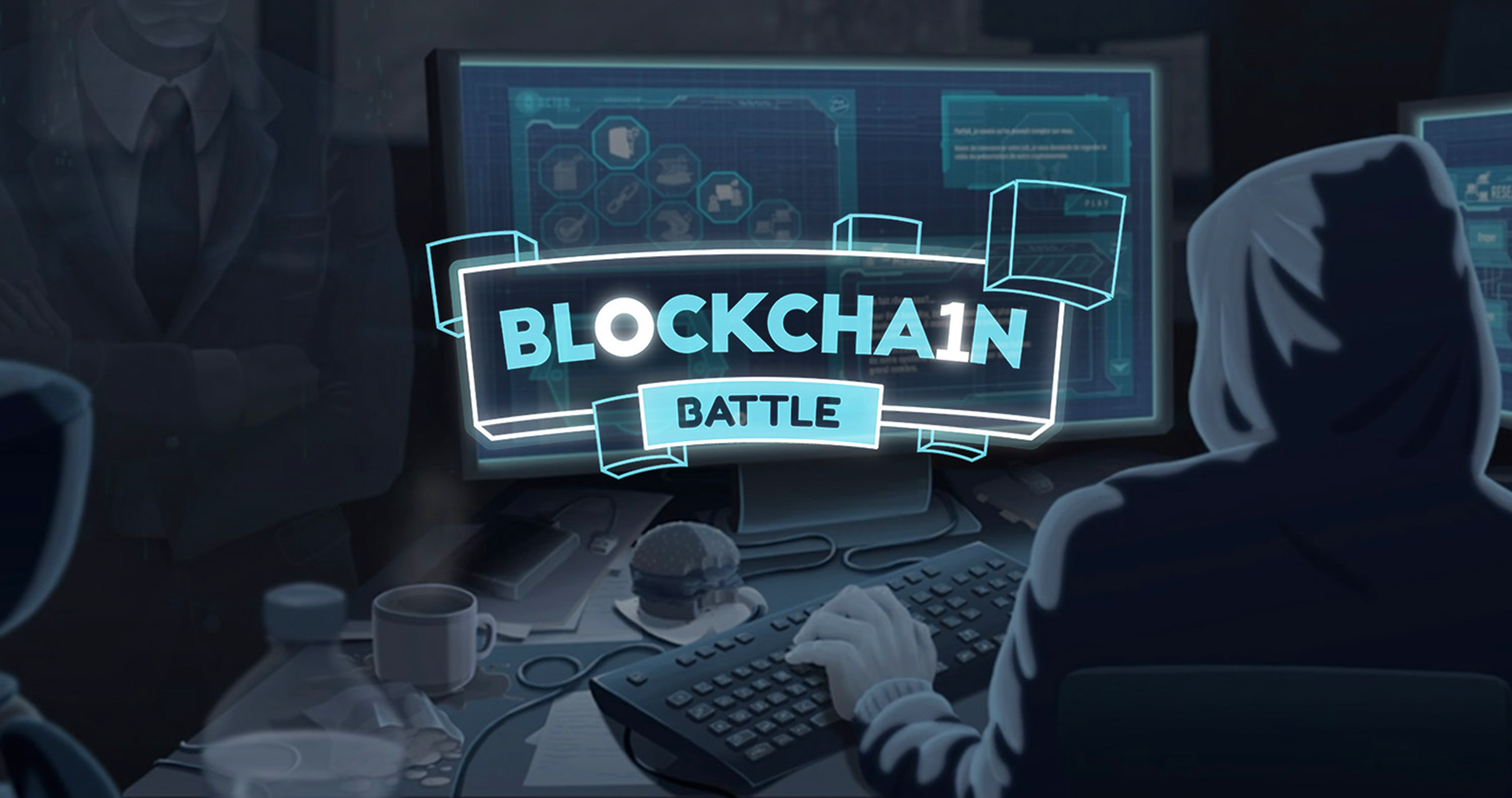
Blockchain Battle by PlayCurious
In this category, we can group games that provide the player with concepts that they can manipulate.
A wonderful example of this is the DragonBox series, which teaches kids essential mathematical concepts such as counting, addition, multiplication and even algebra. For example in DragonBox: Algebra, instead of being shown a whiteboard with complicated numbers and letters inside of imposing equations, the players are shown a two-sided board, with cards having little monsters and creatures on them. Each monster and creature is associated with a different concept of algebra, like “x” for example.
As the player advances in the game the interface changes to incorporate the mathematical notation we know from math class, until finally the player is taking “regular” algebra problems. This game has been so successful that it is commonly used in Norway as a teaching tool in schools.
These games are engaging, really pretty to look at and honestly, they’re exactly what children need in our day and age to maintain their attention. As these games are just like tools for learning, they permit learners to immerse themselves completely in the games they are playing, making them less distracted especially when learning difficult concepts which would have been uninteresting in the classroom.
Blockchain Battle by PlayCurious
Talking about more advanced concepts, what about teaching blockchain and cryptocurrency through a game? Well that’s exactly what we did with Blockchain Battle. For this game, we took the early whitepaper on Bitcoin and broke it down to the essential concepts like hashing, blocks, cryptography, peer-to-peer and so on.
We didn’t want to force the player to do the actual math, just understand the concepts, and so in the game we provide a “calculator” that the player copies and pastes from.. We also chose a backdrop of the “hacker”, which we imagine as some kind of spy/tech whiz who has to detect cheats, and sometimes even cheat themselves, in order to win.
So far our game is used at prestigious business schools in France to teach finance, and has over 4.5 star ranking on multiple online course websites. nd the proof is in the pudding- I for one would not understand the Blockchain as well as I do now if it weren’t for Blockchain Battle!
Video games are the future of learning
Of course these are just some of the ways that player’s learn from video games. These forms of learning can be explicit or implicit depending on the type of game and can help people cover many different topics beyond what we have here, all the while being entertained. However, now that we’ve seen some of which video games can teach, we ask ourselves what topics, if any, cannot be taught through games?
We truly believe that video games are the future of learning, and look forward to seeing the new ways in which games will innovate to teach their players tidbits unknown tidbits of history and find new ways to engage their players with innovative game design.
If you enjoyed this article and want to read more analyses of technology, environment or video game developments, don’t forget to follow us on LinkedIn, Facebook, Twitter or Instagram or join our mailing list!
– écrit par Raphaël Dallery & edited by Jesse Himmelstein
